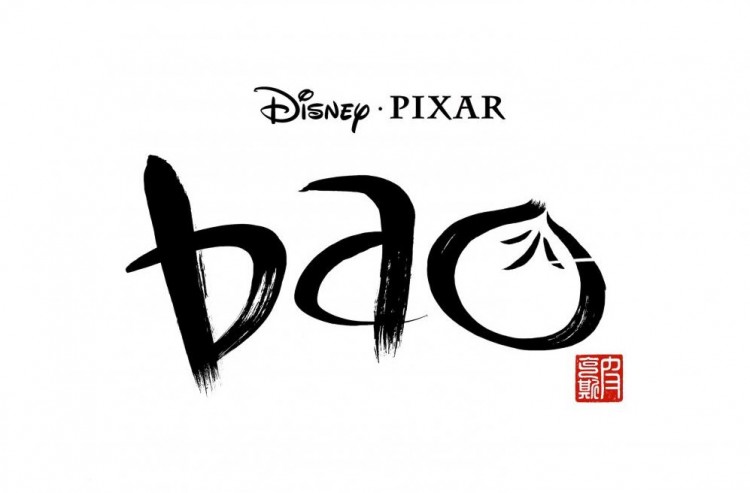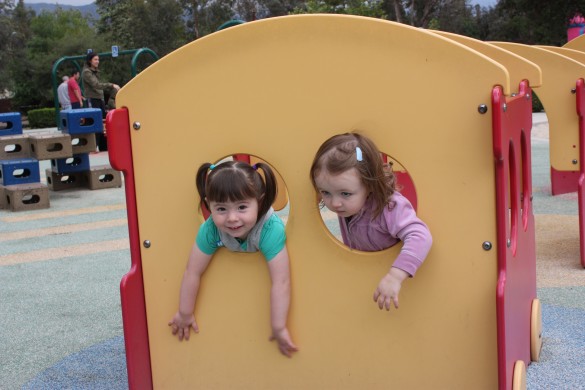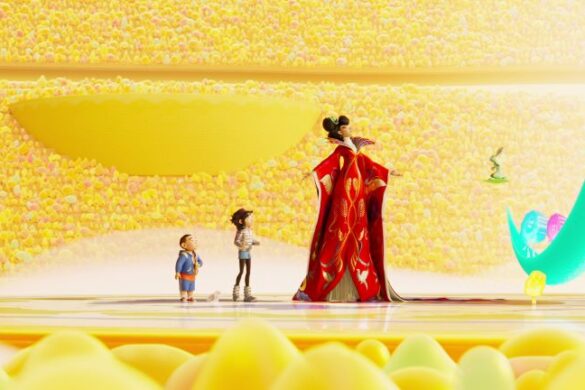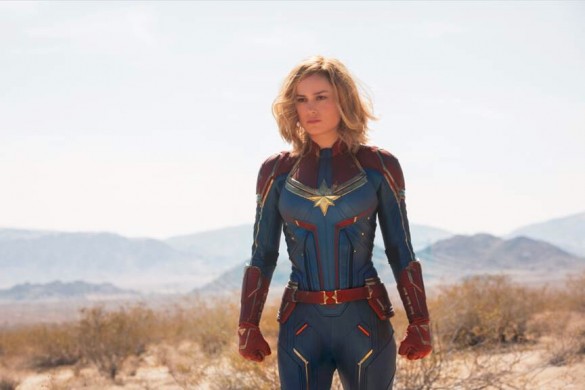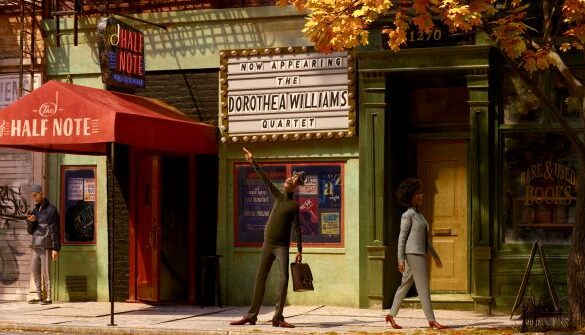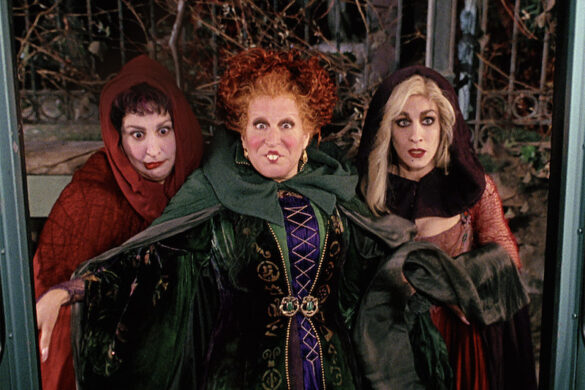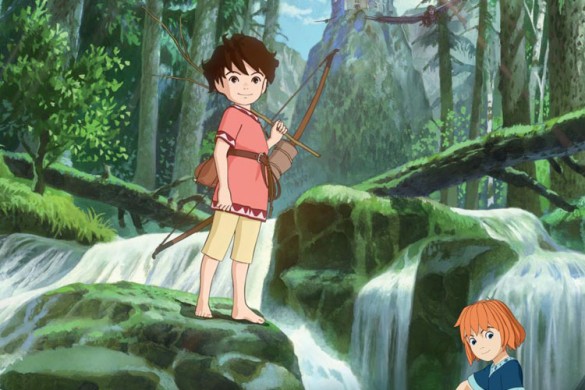It’s become a tradition for Pixar to attach an animated short to their full-length features. While not all shorts are the same, the studio’s progressiveness is starting to show as they are hiring more people of color to direct their shorts.
Bao is the latest example of that. Directed by Domee Shi, Pixar’s latest short is a deliciously heartwarming tale of an empty nest mother who finds a second chance at caring for a child when one of her homemade dumplings comes to life. Mirroring her own familial experiences, Shi’s short draws inspiration from her own life and mother, who helped out with making the dumplings.
For those who may not know, bao has a dual meaning. When translated into English it can mean both treasure and steamed bun. So it makes sense that Bao is the title for this short as it is about a living breathing bao and a mother who goes to great lengths to protect her precious treasure.
We had a chance to sit down without fellow journalists for a Q&A session with Shi and producer Becky Neiman-Cobb. They talked about their upcoming short, Pixar’s new progression, separating their life from their art, and more.
Bao isn’t the first Pixar short to have a person of color as director. In 2015, Sanjay Patel’s Sanjay’s Super Team was released alongside The Good Dinosaur – which also had its first Asian male director, Peter Sohn, to helm a feature-length film. Now with Bao, we get to see the animation studio embracing diversity. “They’ve always wanted to tell unique stories, “ Shi said. “It’s awesome that Bao, Sanjay’s Super Team, and Coco started this trend.”
“People tell the best story when it is something they know really well or something personal,” Neiman-Cobb said. “It’s about finding the storytellers. When Domee pitched this story, there were twenty other people who pitched their ideas. Her’s was a standout.”
Neiman-Cobb said that despite Bao being very culturally specific, audiences will relate to the short because it explores universal themes like food, family, and love.
Shi is the first Asian female director to helm a Pixar short, and on her way to directing a feature film. But as close as she is with her short, audiences may notice that the character has male-like characteristics. While she can confirm that it is a boy, Shi said the decision to make dumpling a male was intentional. “I’ve always had this image in my head of a dumpling mom nuzzling her dumpling boy to death,” Shi said. “Just for me, on a personal level, I like to separate myself on the art that I am working on because then it becomes to autobiographical, and then I feel that I might have been too hesitant to cut things out or if it is too closely related to my mom.”
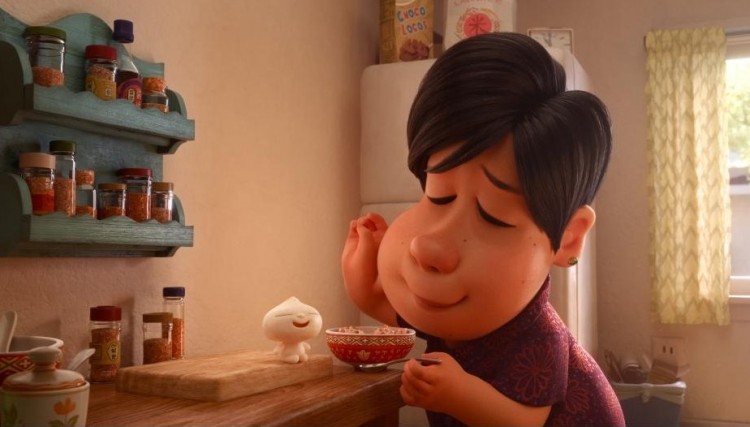
Shi acknowledges the importance of the relationship between the mother and daughter but she feels that if it was a female dumpling it would have been a very different story.
Bao was actually born a few years back when Shi was working on Inside Out as a storyboard artist. After bringing the idea to director Pete Docter, he said that she should pitch it to the shorts committee. And the rest is history. Although she knew she had a great story, she was actually nervous to present it to Pixar themselves. “I was more nervous showing it to the rest of Pixar,” Shi said. “I think my mom will love me unconditionally.”
Without going into major spoilers, Shi had actually drawn up different endings for Bao to get the emotional tones just right. “She didn’t want to hit people over the head with dreamy-eyed effects,” Neiman-Cobb said.
Neiman-Cobb learned a lot more about the process of jumping from a project manager to producer. Her responsibilities included putting a budget together and assembling a team that would see Shi’s vision on the big screen. “When I was on Finding Dory, I was on a team of many, that were all sort of selected or preselected by the producer and director,” Neiman-Cobb said. “I got to be a part of that with Domee. I helped identify who’s our production designer and editor, supervising technical director.”
That experience was very important as the team that Neiman-Cobb put together wants to work with them again. “I felt really lucky and grateful to have a hand in that,” Neiman-Cobb said.
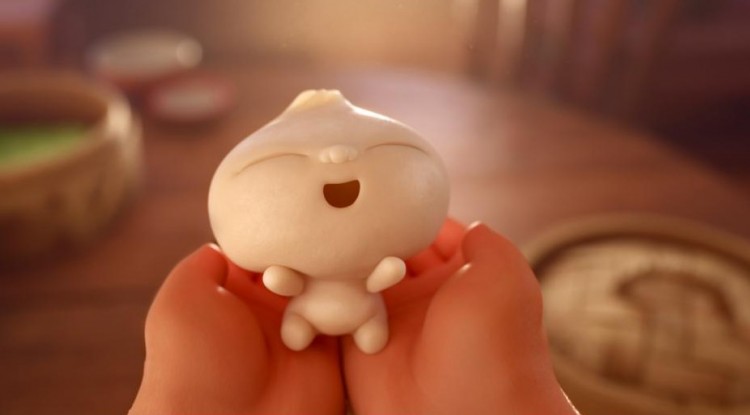
Like most Pixar shorts, there is a lack of dialogue and conversation, and if there were, it would be limited to grunts, light laughter, cries, or gasps. That is no different in Bao, and for Shi, it was a conscious decision not to have anyone speak. “I thought it was a fun challenge to put on myself because my background is storyboarding, and I really love the animation medium because it’s a great visual storytelling medium,” Shi said. “I really wanted Bao to be understood by as many people as possible regardless of language, culture, or even age. I wanted it to resonate with as many people as possible, and I think the best way to do that is through visuals.”
Shi cites the first moments in Up and Wall-E as inspirations for her to take audiences on an emotional rollercoaster. But there is some light dialogue. You just have to have some sharp hearing and understand Mandarin. “There’s a soap opera playing on the TV in the opening dining shot that we recorded dialogue for,” Shi said. “We recorded it in Mandarin. It’s actually like a parallel story to what is happening in the short. It’s about a mother and adult son arguing his wife and leaving the nest. It was kind of a homage to the soap operas I would watch with my mom.”
According to Neiman-Cobb, having no dialogue helps push their artists to use the details like the graphics, lighting, and designs to tell stories without words.
There is a scene within the short that may be a bit shocking to some, but Shi isn’t too worried about traumatizing her younger audience or confusing them about what is real and what is fiction. “We have shown the short to audiences with small children,” Shi said. “A lot of them do understand it. There was this ten-year-old girl who came to us afterward and said ‘I loved it so much, I turned to my mom and told her she better not eat me when I go off to college.’ These dark elements have been around children’s stories like Brothers Grimm and classic fairy tales play around with light and dark themes. I think children are very smart and I think it’s okay to introduce them to these types of stories because then you can have a conversation with them about it afterward.”
Toby Chu helped with conducting the score for the short. One of the things that Shi wanted was to incorporate Eastern and Western instrumentals into the score. “I wanted to have Eastern influences in the beginning and Western instruments at the end to show the mother’s character’s change emotionally of her acceptance of this Caucasian woman in her life but her change in life in general.”
Neiman-Cobb then revealed a funny story about Chu’s involvement. When they were showing him early story reels, he was speechless. Neiman-Cobb said Chu told them “that’s my life.” They would eventually meet the blonde-haired Caucasian wife, which would actually serve as an inspiration for his work on the short. “Use that. Use that life experience and put it into your work,” Shi said.
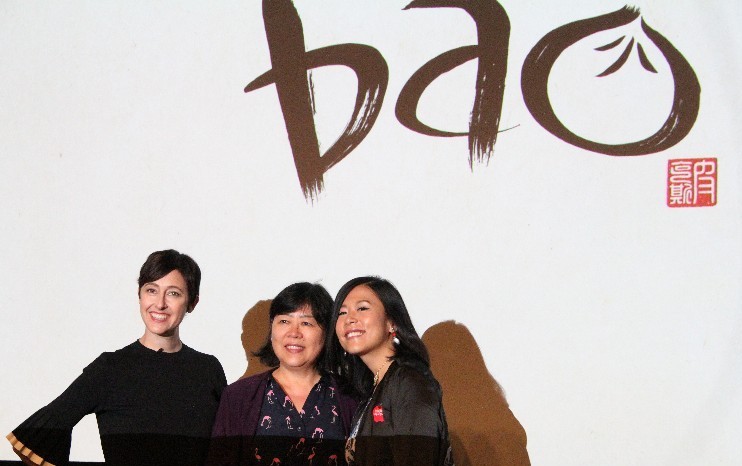
Bao is can be seen before all showings of Incredibles 2, which opens in theaters June 15, 2018.

